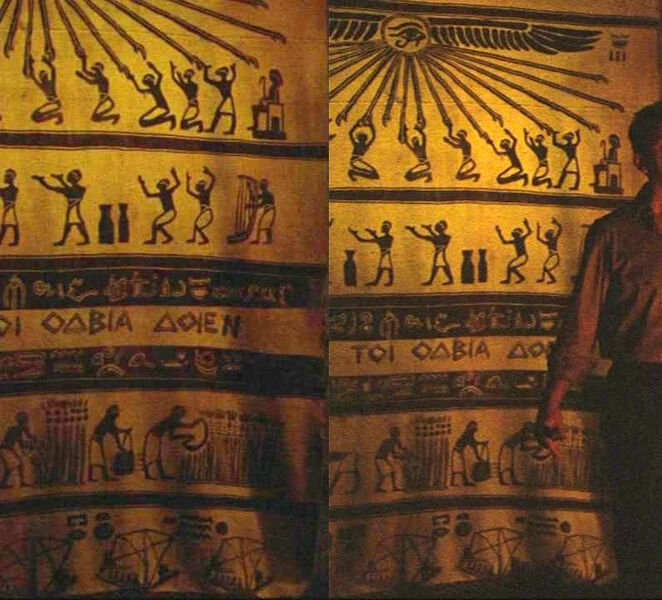In ancient Greece people believed in fate and in mythology this whole thing was personalized by the Moirae. The Moirae or Moerae (in Greek Μοῖραι – the "apportioners", often called the The Fates), in Greek mythology, were the three white-robed
personifications of destiny. The Greek word moira (μοῖρα) literally means a part or portion, and by extension one's portion in life or destiny. They controlled the metaphorical thread of life of every mortal from birth to death (and beyond).
The three Moirae were:
Clotho (Greek Κλωθώ – "spinner") spun the thread of life from her distaff onto her spindle. Her Roman equivalent was Nona, (the 'Ninth'), who was originally a goddess called upon in the ninth month of pregnancy.
Lachesis (Greek Λάχεσις – "allotter" or drawer of lots) measured the thread of life allotted to each person with her measuring rod. Her Roman equivalent was Decima (the 'Tenth').
Atropos (Greek Ἄτροπος – "inexorable" or "inevitable", literally "unturning",[4] sometimes called Aisa) was the cutter of the thread of life. She chose the manner and timing of each person's death. When she cut the thread with "her abhorrèd shears", someone on Earth died. Her Roman equivalent was Morta ('Death').
In the season 5 final episode we see Jacob weaves clothe with some words and symbols written on, this is a straight reference to Clotho!
On this piece of cloth it is written a phrase which actually is from Homers Odyssey:

ΘΕΟΙ ΤΟΣΑ ΔΟΙΕΝ ΟΣΑ ΦΡΕΣΙ ΣΗΣΙ ΜΕΝΟΙΝΑΣ
( [σοὶ δὲ] θεοὶ τόσα δοῖεν ὅσα φρεσὶ σῇσι μενοινᾷς )

ΘΕΟΙ ΔΕ ΤΟΙ ΟΛΒΙΑ ΔΟΙΕΝ
(θεοὶ δέ τοι ὄλβια δοῖεν)
I’ve noticed that people try to translate it but they don’t get the actual meaning because Homer didn’t write Odyssey in ancient Greek but in a dialect based on ancient Greek language! The Odyssey was written in a regionless poetic dialect of Greek and comprises 12,110 lines of dactylic hexameter. So the actual translation in English of the phrase above is:
may the gods grant thee all that thy heart desire
may the gods grant thee happiness
Also there is a third line at Jacob’s tapestry I can’t make out any sense. There is a piece missing at the left bottom corner. I checked if this is the piece that Ilana found at Jacob’s house but there was no text but the statue on it. So, trying to understand what is written at the bottom line I can clearly see “ΜΟΝΟΝ ΤΟΥ ΠΟΛΕΜΟΥ ΤΕΛΟΣ”. Which means:
Only the end of the war
With a little research I found out that the only reference leads as to a phrase that Plato said (or written) once and actually is:
ΝΕΚΡΟΙ ΔΕ ΜΟΝΟΙ ΟΡΟΥΣΙΝ ΤΟ ΤΟΥ ΠΟΛΕΜΟΥ ΤΕΛΟΣ
( νεκροί δε μόνοι ορούσιν το του πολέμου τέλος )
Translated as:
Only the dead can see the end of the war